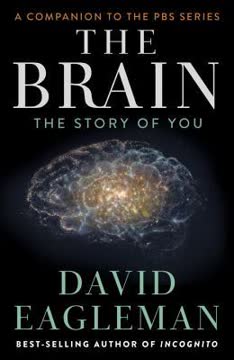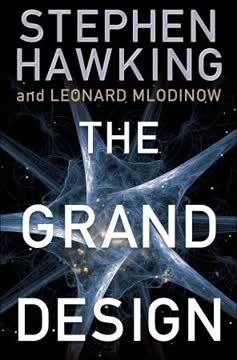Key Takeaways
1. The brain is a complex biological computer that creates models of reality
The brain weighs only three pounds, yet it is the most complex object in the solar system.
The brain's structure. The human brain contains approximately 100 billion neurons, with each neuron connected to about 10,000 others. This creates a vast network capable of processing enormous amounts of information. The brain is divided into several key regions:
- Neocortex: Responsible for higher-order thinking and cognition
- Limbic system: Processes emotions and memory
- Brain stem: Controls basic life functions
- Cerebellum: Coordinates movement and balance
Information processing. The brain constantly receives sensory input and creates internal models of the world. It uses these models to:
- Interpret sensory data
- Make predictions about future events
- Guide decision-making and behavior
- Update its understanding based on new information
This process allows humans to navigate complex environments and interact with the world in sophisticated ways.
2. Consciousness is the process of simulating future scenarios to achieve goals
Human consciousness is a specific form of consciousness that creates a model of the world and then simulates it in time, by evaluating the past to simulate the future.
Levels of consciousness. The author proposes a hierarchy of consciousness:
- Level 0: Simple feedback loops (e.g., thermostats)
- Level I: Creating models in space (e.g., insects, reptiles)
- Level II: Social awareness and emotions (e.g., mammals)
- Level III: Simulating future scenarios (humans)
Human consciousness. What sets human consciousness apart is our ability to:
- Create detailed mental models of the world
- Run simulations of potential future scenarios
- Evaluate outcomes to guide decision-making
- Incorporate past experiences into future planning
This process occurs primarily in the prefrontal cortex, which acts as the brain's "CEO," mediating between different regions and making executive decisions based on simulated outcomes.
3. Technological advances are revolutionizing our understanding of the brain
We have learned more about the brain in the last fifteen years than in all prior human history, and the mind, once considered out of reach, is finally assuming center stage.
Brain imaging technologies. Recent advances have provided unprecedented insight into brain function:
- fMRI (functional Magnetic Resonance Imaging): Measures brain activity by detecting changes in blood flow
- EEG (Electroencephalography): Records electrical activity of the brain
- PET (Positron Emission Tomography): Uses radioactive tracers to measure brain activity
- Optogenetics: Allows control of specific neurons using light
Applications of brain imaging. These technologies are being used to:
- Map brain regions and their functions
- Study neural activity during various tasks
- Investigate mental illnesses and neurological disorders
- Develop brain-computer interfaces
The rapid progress in brain imaging is leading to new understandings of cognition, emotion, and consciousness, with potential applications in medicine, psychology, and artificial intelligence.
4. Mind-reading and thought control are becoming scientific realities
Using MRI scans, scientists can now read thoughts circulating in our brains.
Mind-reading technologies. Recent experiments have demonstrated the ability to:
- Reconstruct visual images from brain activity
- Decode simple thoughts and words
- Predict decisions before conscious awareness
Ethical considerations. The development of mind-reading technology raises important ethical questions:
- Privacy concerns: How to protect mental privacy
- Consent issues: When and how can this technology be used
- Potential misuse: Implications for law enforcement and criminal justice
Future applications. Potential uses of mind-reading technology include:
- Improved communication for paralyzed individuals
- Enhanced lie detection methods
- More intuitive human-computer interfaces
- Treatment for mental health disorders
While current capabilities are limited, the rapid pace of progress suggests that more advanced mind-reading may be possible in the future.
5. Memory manipulation and intelligence enhancement may soon be possible
If memories can be implanted like uploading computer files, it could also shake the foundation of our legal system.
Memory manipulation. Emerging research suggests potential methods for altering memories:
- Optogenetics: Using light to activate or suppress specific neurons
- Pharmacological interventions: Drugs that affect memory consolidation or recall
- Brain stimulation: Techniques like transcranial magnetic stimulation (TMS)
Intelligence enhancement. Possible approaches to boosting cognitive abilities:
- Genetic engineering: Modifying genes associated with intelligence
- Brain-computer interfaces: Augmenting natural cognition with artificial systems
- Nootropic drugs: Substances that may enhance cognitive function
Ethical and societal implications. The ability to manipulate memory and enhance intelligence raises complex issues:
- Identity and authenticity: How altering memories might affect personal identity
- Fairness and equality: Potential for creating cognitive "haves" and "have-nots"
- Legal and ethical frameworks: Need for regulations governing these technologies
6. Mental illnesses arise from imbalances in brain feedback loops
Mental illness is largely caused by the disruption of the delicate checks and balances between competing feedback loops that simulate the future.
Brain feedback loops. Mental processes rely on complex interactions between brain regions:
- Emotional regulation: Amygdala - prefrontal cortex loop
- Memory formation: Hippocampus - cortex loop
- Reward and motivation: Nucleus accumbens - prefrontal cortex loop
Mental illness mechanisms. Disruptions in these feedback loops can lead to various disorders:
- Depression: Overactivity in negative emotion circuits
- Anxiety: Heightened threat detection and response
- Schizophrenia: Disrupted reality processing and sensory integration
Treatment approaches. Understanding mental illness as a disorder of brain circuits suggests new treatment strategies:
- Targeted drug therapies to modulate specific neural pathways
- Brain stimulation techniques to reset disrupted circuits
- Cognitive-behavioral therapies to rewire maladaptive thought patterns
This model of mental illness offers hope for more effective, personalized treatments based on an individual's unique brain dynamics.
7. Artificial intelligence is progressing but true consciousness remains elusive
All the hype aside, the truth is that Watson is a highly sophisticated adding machine, able to add (or search data files) billions of times faster than the human brain, but it is totally lacking in self-awareness or common sense.
Current state of AI. Artificial intelligence has made significant strides in specific domains:
- Pattern recognition and data analysis
- Natural language processing
- Game playing and strategic decision-making
However, these systems lack key aspects of human-like intelligence:
- General problem-solving abilities
- True understanding of context and meaning
- Self-awareness and consciousness
Challenges in creating conscious AI. Obstacles to developing human-like AI include:
- Complexity of replicating brain function
- Difficulty in defining and measuring consciousness
- Ethical concerns about creating sentient machines
While AI continues to advance rapidly, the goal of creating truly conscious machines remains a distant and controversial prospect.
8. Reverse engineering the brain could unlock its deepest secrets
Once the brain is reverse engineered, it might be possible to run simulations of the brain, deliberately disrupting a few connections to see if you can induce certain illnesses.
Approaches to reverse engineering. Scientists are pursuing several strategies:
- Mapping neural connections (connectomics)
- Simulating brain function with supercomputers
- Analyzing gene expression in brain tissue
Potential benefits. Successfully reverse engineering the brain could:
- Reveal causes of neurological and psychiatric disorders
- Guide development of more effective treatments
- Inform design of more advanced artificial intelligence
- Deepen our understanding of consciousness and cognition
Challenges and limitations. The immense complexity of the brain poses significant obstacles:
- Technical challenges in imaging and data analysis
- Ethical concerns about brain manipulation
- Difficulty in interpreting the vast amount of data generated
Despite these challenges, reverse engineering the brain remains a key goal in neuroscience, with potential to transform our understanding of the mind.
9. The future may allow for consciousness to exist beyond the physical body
If consciousness can be transferred into a computer, does that mean we don't have to die?
Theoretical possibilities. Speculative technologies for preserving consciousness include:
- Mind uploading: Transferring mental contents to a computer
- Brain emulation: Creating a functional copy of a brain in silico
- Cybernetic enhancement: Augmenting biological brains with artificial components
Scientific challenges. Significant obstacles must be overcome:
- Understanding the neural basis of consciousness
- Developing technologies to capture and transfer mental states
- Creating suitable substrates to house transferred consciousness
Philosophical and ethical considerations. The prospect of separating consciousness from the body raises profound questions:
- Personal identity: Would a digital copy truly be "you"?
- Moral status: What rights would non-biological consciousnesses have?
- Societal impact: How would immortality affect human civilization?
While currently in the realm of science fiction, the idea of consciousness beyond the body continues to inspire scientific research and philosophical debate.
Last updated:
FAQ
What's The Future of the Mind about?
- Exploration of Consciousness: The book explores the scientific quest to understand, enhance, and empower the human mind, focusing on consciousness and its relationship with the universe.
- Interdisciplinary Approach: Michio Kaku combines insights from physics, neuroscience, and psychology to discuss how technology can unlock the mysteries of the mind.
- Future Technologies: It speculates on future technologies like telepathy, telekinesis, and mind uploading, which could fundamentally change human experience.
Why should I read The Future of the Mind?
- Cutting-Edge Science: The book presents groundbreaking research and theories in neuroscience and physics, making complex topics accessible to general readers.
- Thought-Provoking Ideas: Kaku challenges readers to consider profound questions about consciousness, identity, and human enhancement through technology.
- Visionary Predictions: It offers a glimpse into a future where technology reshapes our understanding of the mind, appealing to those interested in science and its implications.
What are the key takeaways of The Future of the Mind?
- Mind and Universe Connection: Kaku emphasizes the parallels between the universe's vastness and the human mind's complexity, both largely mysterious.
- Technological Advancements: The book discusses emerging technologies like brain-computer interfaces and neuroprosthetics that could revolutionize human interaction.
- Ethical Considerations: It raises important ethical questions about privacy, identity, and the implications of altering human consciousness through technology.
What are the best quotes from The Future of the Mind and what do they mean?
- “The mind of man is capable of anything … because everything is in it, all the past as well as all the future.” This highlights the vast potential of the human mind, shaped by experiences and memories.
- “It is the business of the future to be dangerous.” Kaku warns of the risks and ethical dilemmas accompanying technological advancements.
- “The empires of the future will be empires of the mind.” This suggests future power dynamics will be determined by intellectual and technological advancements.
How does Michio Kaku define consciousness in The Future of the Mind?
- Complex Definition: Kaku defines consciousness as creating a model of the world using feedback loops to accomplish goals.
- Levels of Consciousness: He categorizes consciousness into levels, from basic awareness in simple organisms to advanced human capabilities.
- Interconnectedness: The book suggests consciousness is influenced by interactions with the environment and other beings, not just a brain product.
What advancements in neuroscience are discussed in The Future of the Mind?
- Brain-Computer Interfaces: Kaku highlights devices allowing paralyzed individuals to control computers and robotic limbs with thoughts.
- Neuroprosthetics: The book details technology creating artificial limbs controlled by brain signals, improving life quality for those with disabilities.
- Memory Manipulation: Kaku explores altering memories and enhancing intelligence through genetic and technological means, raising identity questions.
How does The Future of the Mind explain telepathy?
- Scientific Research: Kaku discusses research decoding brain signals, allowing for potential telepathic communication through brain-computer interfaces.
- Technological Applications: Experiments have interpreted thoughts using EEG and MRI technologies, hinting at future telepathic capabilities.
- Limitations and Ethics: While exciting, Kaku addresses ethical implications and privacy concerns of mind-reading technologies.
What ethical dilemmas does Kaku highlight regarding memory manipulation in The Future of the Mind?
- Consequences of Forgetfulness Drugs: Kaku questions the ethics of using drugs to erase memories, emphasizing the role of memories in shaping identity.
- Access and Inequality: He warns of potential inequality, with only the wealthy accessing memory manipulation technologies.
- Moral Responsibility: Kaku stresses the need for ethical guidelines in developing and applying memory manipulation technologies.
How does Kaku envision the future of consciousness and technology in The Future of the Mind?
- Mind Uploading: Kaku speculates about uploading human consciousness into machines, allowing for digital immortality.
- Telepathy and Communication: Future technologies could enable telepathic communication, fundamentally changing human interaction.
- Cyborgs and Enhancement: He envisions humans enhancing cognitive abilities through technology, leading to a new era of human evolution.
What are the implications of AI surpassing human intelligence according to Kaku?
- Potential Threats: Kaku warns of existential risks if AI surpasses human intelligence without aligned goals.
- Need for Ethical Programming: He emphasizes programming AI with benevolent goals to prevent conflicts between humans and machines.
- Future Coexistence: Kaku discusses the possibility of humans merging with AI, leading to a new form of existence.
How does Kaku relate consciousness to the universe in The Future of the Mind?
- Consciousness as a Cosmic Phenomenon: Kaku suggests consciousness may be a fundamental aspect of the universe, intertwined with reality's fabric.
- Anthropic Principle: He discusses the principle positing the universe is finely tuned for life and consciousness.
- Exploration of Existence: The book encourages pondering deeper questions of existence and consciousness's role in understanding the universe.
How does Kaku explain self-aware robots in The Future of the Mind?
- Theory of Mind: Self-aware robots must possess a Theory of Mind, understanding their existence and simulating future actions.
- Mirror Test: Kaku discusses robots like Nico recognizing themselves, marking a step toward self-awareness.
- Long Journey Ahead: Despite advancements, creating robots with human-like self-awareness requires further AI breakthroughs.
Review Summary
The Future of the Mind receives mostly positive reviews, praised for its engaging style and fascinating exploration of neuroscience and future brain technologies. Readers appreciate Kaku's ability to explain complex concepts and tie them to pop culture references. Some criticize the book for being too speculative or oversimplified in parts. Many find it thought-provoking and enjoyable, though a few feel it lacks depth on certain topics. Overall, reviewers recommend it as an accessible and stimulating look at the potential future of the human mind.
Similar Books










Download PDF
Download EPUB
.epub digital book format is ideal for reading ebooks on phones, tablets, and e-readers.












